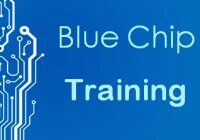 Overview
Overview
SQLite is an open source serverless database for embedded applications that requires no configuration or administration. It is lightweight, efficient, and reliable, making it suitable for embedded devices and IoT.
This instructor-led, live training (online or onsite) is aimed at developers who wish to use SQLite to develop embedded applications for various devices, such as desktops, mobile phones, Android TV, cameras, etc.
By the end of this training, participants will be able to:
- Install and configure SQLite on any platform.
- Understand the features and architecture of SQLite.
- Learn how to execute common SQL operations in SQLite.
- Learn how to manipulate data and tables in SQLite.
- Understand the various SQLite data types, tools, and functions.
- Perform calculations with SQLite aggregate functions.
Format of the Course
- Interactive lecture and discussion.
- Lots of exercises and practice.
- Hands-on implementation in a live-lab environment.
Course Customization Options
- To request a customized training for this course, please contact us to arrange.
Requirements
- Basic SQL experience
Audience
- Developers
Course Outline
Introduction
- Overview of SQLite features and architecture
- SQL basic concepts
Getting Started
- Installing SQLite
- Connecting to the database
- Using the SQLite3 tool
SQLite Data Manipulation
- Query and subquery
- Create and insert
- Sorting and filtering
- Removing duplicates
- Data types and aliases
SQLite Operators
- Basic SQL operators
- GLOB operator
- Limit clause
SQLite Database Tables
- Inner and outer joins
- Cross and self joins
- Create and update tables
- Delete and drop tables
- SQLite constraints
SQLite Aggregate Functions
- Basic functions (AVG, COUNT, MAX, MIN, and SUM)
- Group by statement
- Having clause
- Aggregate examples
Troubleshooting
Summary and Next Steps
